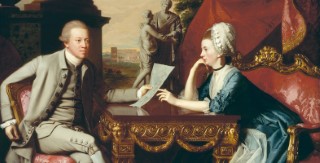Travelling for culture: the Grand Tour
Discover the cultural encounters of the Grand Tour in the 18th and 19th centuries. Explore the significance of the ancient world and its influence on modern visitors. Analyze various texts and images to inspire new creative activities in Art History, English Literature, Creative Writing, and Classical Studies.
In the eighteenth century and into the early part of the nineteenth, considerable numbers of aristocratic men (and occasionally women) travelled across Europe in pursuit of education, social advancement and entertainment, on what was known as the Grand Tour. A central objective was to gain exposure to the cultures of classical antiquity, particularly in Italy. In this free course, you’ll explore some of the different kinds of cultural encounters that fed into the Grand Tour, and will explore the role that they play in our study of Art History, English Literature, Creative Writing and Classical Studies today.This OpenLearn course is an adapted extract from the Open University course A112 Cultures.
Course learning outcomes
After studying this course, you should be able to:
Understand some of the key characteristics of the Grand Tour as a cultural practice in eighteenth and nineteenth century Europe
Appreciate why the ancient world was so significant for modern visitors of this era
Analyse a range of different texts and images, both ancient and modern
Reflect how how these texts and images can prompt new creative activity, and put this into practice.
User Reviews
Be the first to review “Travelling for culture: the Grand Tour”
You must be logged in to post a review.







There are no reviews yet.